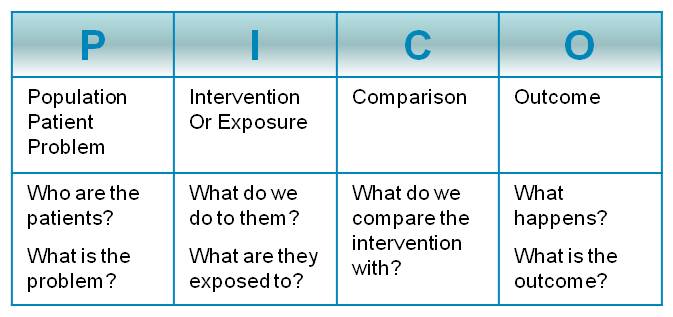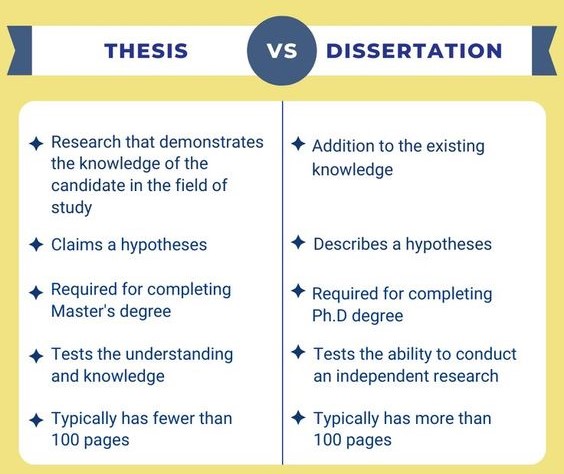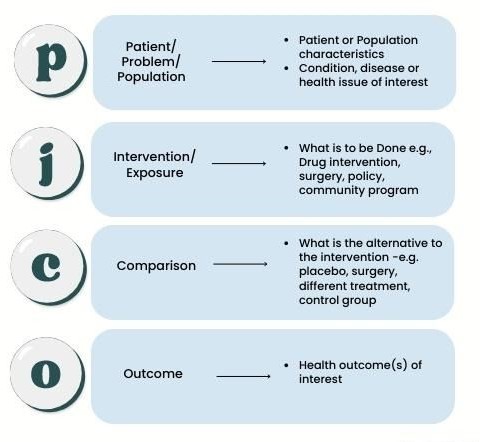
Table of Contents
The nursing thesis is a culmination of years of dedicated study and research. It is a complex undertaking, demanding rigorous scholarship, meticulous analysis, and a compelling narrative that contributes meaningfully to the field of nursing. For many aspiring nurses, the prospect of writing a nursing thesis can seem daunting. But fear not! With a clear understanding of the key elements and strategic approaches, crafting a strong nursing thesis is achievable and even rewarding.
This guide will provide aspiring nurses with a comprehensive roadmap for writing a strong nursing thesis, highlighting crucial steps, effective strategies, and valuable insights to ensure a successful journey.
Step-by-Step Guide to Writing a Compelling Nursing Thesis

1. Choosing the Right Topic: A Foundation for Success
The first step in crafting a strong nursing thesis is identifying a suitable research topic. This crucial decision sets the stage for the entire project, so it’s essential to choose wisely. A well-defined and relevant topic will not only ignite your passion but also lay the groundwork for a compelling and impactful thesis.
Factors to consider when selecting a topic:
- Relevance and Significance: The chosen topic should address a current and pressing issue within the nursing field. Consider areas where existing knowledge is limited, where there are gaps in practice, or where innovative solutions are needed. A nursing thesis on the effectiveness of a new intervention for managing chronic pain in elderly patients would be more impactful than a study on the history of nursing education.
- Personal Interest and Passion: Your enthusiasm for the chosen topic will be crucial throughout the writing process. Choose a subject that genuinely fascinates you and sparks your intellectual curiosity. A genuine passion for the topic will translate into a more engaging and insightful thesis.
- Feasibility and Resources: Consider the resources available to you, including time, funding, and access to data. A research topic that requires extensive travel or expensive equipment might not be feasible. A nursing thesis focused on a local community health issue, utilizing readily available data, might be a more practical choice.
- Ethical Considerations: Ensure that the research topic is ethically sound and respects the privacy and well-being of participants. For example, a nursing thesis studying the impact of a new medication on patients must adhere to strict ethical guidelines for informed consent and data privacy.
Tips for generating potential topics:
- Review recent nursing literature: Explore journals, books, and conference proceedings to identify emerging trends, unanswered questions, and gaps in knowledge within your area of interest.
- Consult with mentors and faculty: Discuss potential topics with your advisor or other experienced nurses. They can offer invaluable guidance, insights, and suggestions based on their expertise.
- Observe real-world practice: Pay close attention to challenges, opportunities, and areas for improvement in your clinical practice. These observations can inspire compelling research questions for your nursing thesis.
2. Framing a Clear and Focused Research Question:
Once a relevant topic has been chosen, the next step is to formulate a clear and focused research question. This question will serve as the guiding principle for your entire nursing thesis, shaping the research design, data collection methods, and analysis.
Characteristics of a strong research question:
- Specific and Measurable: A well-defined research question clarifies the specific aspects of the topic that you intend to investigate. For example, instead of asking “What are the factors influencing medication adherence in elderly patients?” a stronger question might be “What is the impact of patient education interventions on medication adherence in elderly patients with diabetes?”
- Relevant and Significant: The research question should address a gap in knowledge or a pressing issue within the nursing field. It should contribute to the existing body of literature and have practical implications for nursing practice.
- Feasible and Answerable: The research question should be within the scope of your resources and expertise, and it should be possible to collect data and analyze it within the time frame of your thesis project.
Tools for developing a strong research question:
- PICO framework: This framework helps structure your research question by considering the Population, Intervention, Comparison, and Outcome of your study. For example, in the previous example, the PICO framework helps to clarify the target population (elderly patients with diabetes), the intervention (patient education interventions), the comparison group (patients who did not receive education interventions), and the outcome (medication adherence).

- Literature review: A comprehensive review of existing research on your chosen topic will help identify key areas where more research is needed.
3. Crafting a Comprehensive Literature Review:
A thorough and insightful literature review is the backbone of a strong nursing thesis. It provides a foundation for your research by summarizing existing knowledge, identifying gaps in the literature, and justifying the need for your study.
Key components of an effective literature review:
- Comprehensive Search: Conduct a systematic search of relevant databases, journals, and books using appropriate keywords and search strategies. Aim to capture the most recent and influential research on your topic.
- Critical Analysis: Go beyond simply summarizing the literature. Analyze the strengths and limitations of each study, identify any inconsistencies or controversies, and consider how the existing research contributes to your own research question.
- Synthesis and Integration: Organize the literature in a coherent manner, highlighting key themes, identifying gaps in the research, and drawing connections between different studies.
Strategies for conducting a successful literature review:
- Start early: Begin your literature review as soon as you have chosen a topic. This allows you to gradually build a solid foundation for your research.
- Use a variety of sources: Go beyond traditional journal articles and explore books, dissertations, conference proceedings, and grey literature.
- Use citation management tools: Tools like EndNote, Zotero, and Mendeley can help you organize your references, generate citations, and create a bibliography.
4. Designing a Rigorous Research Methodology:
Once you have a strong research question and a comprehensive understanding of the existing literature, you need to design a research methodology that will allow you to collect and analyze data in a rigorous and ethical manner.

Key elements of a well-designed research methodology:
- Research Design: Choose a research design that is appropriate for your research question and aims. Common nursing thesis research designs include quantitative (e.g., randomized controlled trials, surveys), qualitative (e.g., interviews, focus groups), and mixed methods approaches.
- Data Collection Methods: Select data collection methods that are reliable, valid, and appropriate for your research question. For example, you might use questionnaires, interviews, observations, or physiological measurements.
- Data Analysis Plan: Develop a detailed plan for analyzing the data you collect. The analysis methods should be consistent with your research design and research question.
- Ethical Considerations: Ensure that your research methodology adheres to ethical guidelines, protecting the privacy and well-being of participants.
Tips for developing a strong research methodology:
- Consult with your advisor: Discuss your research design, data collection methods, and analysis plan with your advisor. They can provide valuable feedback and guidance to ensure the rigor and feasibility of your study.
- Pilot test your methods: Conduct a pilot study to test your data collection methods and analysis procedures before you begin your full-scale research.
- Consider the limitations: Be aware of the limitations of your research design and methods, and acknowledge them in your thesis.
5. Collecting and Analyzing Data:
Once you have developed your research methodology, the next step is to collect data. This process can be time-consuming and demanding, but it is also an exciting and rewarding part of the research journey.

Key principles for data collection:
- Accuracy and Reliability: Ensure that your data collection methods are accurate and reliable, producing consistent and trustworthy results.
- Ethical Considerations: Adhere to ethical guidelines throughout the data collection process, protecting the privacy and well-being of participants.
- Data Management: Develop a system for organizing and managing your data. This will ensure that your data is accessible, secure, and easily analyzed.
Data analysis techniques:
- Quantitative data: Use statistical software programs like SPSS or R to analyze numerical data, looking for patterns, relationships, and statistically significant findings.
- Qualitative data: Use qualitative data analysis techniques like thematic analysis, content analysis, or grounded theory to identify patterns, themes, and insights from textual or observational data.
- Mixed methods: Combine quantitative and qualitative data analysis techniques to gain a richer and more nuanced understanding of your research topic.
Writing the Nursing Thesis
The final stage of the nursing thesis process is writing the thesis itself. This is a demanding but rewarding process that allows you to synthesize your research findings, develop a coherent narrative, and make a meaningful contribution to the field of nursing.
Structure of a typical nursing thesis:
- Introduction: Provide a brief overview of your research topic, your research question, and the significance of your study.
- Literature Review: Summarize the existing research on your topic, identify gaps in the literature, and justify the need for your study.
- Methodology: Describe your research design, data collection methods, and data analysis plan.
- Results: Present your research findings in a clear, concise, and organized manner.
- Discussion: Interpret your findings, discuss their implications, and address any limitations of your study.
- Conclusion: Summarize your key findings, highlight the significance of your study, and offer recommendations for future research.
Tips for writing a strong nursing thesis:
- Start early: Begin writing your thesis as soon as you have collected and analyzed your data. This will give you ample time to refine your ideas, develop a coherent narrative, and revise your work.
- Develop a writing plan: Create a writing schedule and outline for your thesis. This will help you stay on track and ensure that you cover all the necessary elements.
- Write in clear and concise language: Use academic language but avoid jargon or overly complex sentence structures.
- Seek feedback from others: Share your work with your advisor, peers, or colleagues for feedback.
- Proofread carefully: Ensure that your thesis is free of grammatical errors, typos, and inconsistencies.
How to Defend Your Nursing Thesis
After completing your nursing thesis, you will likely have to defend it in front of a panel of experts. This is an opportunity to showcase your research, respond to questions, and demonstrate your understanding of the subject matter.
Preparing for your defense:
- Practice your presentation: Rehearse your presentation multiple times to ensure that you are comfortable and confident delivering it.
- Prepare for potential questions: Anticipate questions that the panel might ask and prepare your responses.
- Understand your research: Review your thesis thoroughly to ensure that you have a deep understanding of your research findings and their implications.
During your defense:
- Stay calm and confident: Be prepared to answer questions clearly and succinctly, maintaining a professional and respectful demeanor.
- Listen attentively: Pay attention to the questions being asked and make sure that you understand what the panel is looking for.
- Stay focused on your research: Keep your answers relevant to your research question and findings.
Final Thoughts: A Journey of Growth and Discovery

Writing a nursing thesis is a challenging but rewarding endeavor. It is a journey of intellectual growth, self-discovery, and contribution to the field of nursing. By following the strategies outlined in this guide, aspiring nurses can navigate the path to success and produce a strong and impactful nursing thesis. Remember, the journey itself is as important as the destination. Embrace the challenges, learn from your experiences, and let your passion for nursing guide you every step of the way.
Professional Nursing Thesis Writing Assistance
Are you looking for help with crafting a powerful nursing thesis? Then, look no further than Nursing Papers. We are the experts that you can always count on to deliver an original and compelling nursing thesis for academic excellence. Apart from writing the thesis, we can also help you with proof reading and editing, and, plagiarism check and removal. We can also assist you with writing engaging nursing research papers, case studies and dissertations.













